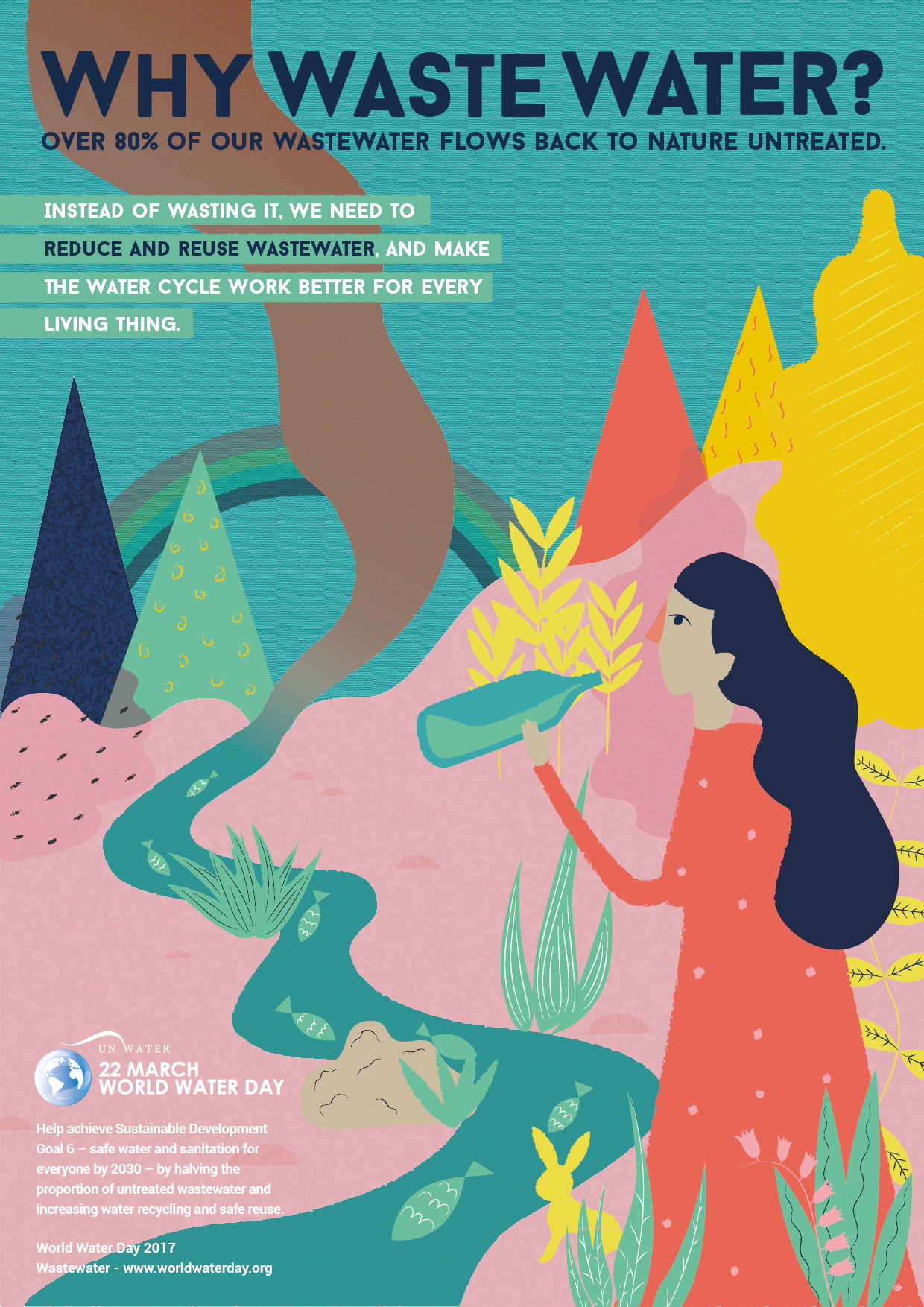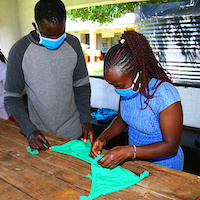Why waste water?
World Water Day is held on 22 March every year and is a way of talking about and taking action on important issues around water. This year the focus is on the water we waste. 
Globally, the vast majority of all the wastewater from our homes, cities, industry and agriculture flows back to nature without being treated or reused – polluting the environment, and losing valuable nutrients and other recoverable materials. Instead of wasting wastewater, we need to reduce and reuse it. In our homes, we can reuse greywater on our gardens and plots. In our cities, we can treat and reuse wastewater for green spaces. In industry and agriculture, we can treat and recycle discharge for things like cooling systems and irrigation. By exploiting this valuable resource, we will make the water cycle work better for every living thing. And we will help achieve the Sustainable Development Goal 6 target to halve the proportion of untreated wastewater and increase water recycling and safe reuse.
Our work in East Africa
The absolute necessity for adequate WASH (Water, Sanitation and Hygiene) facilities is understood in all societies. And yet many people in the developing world still do not have these basic requirements. As a result diarrhoeal diseases are common, causing avoidable deaths in babies and young children and high levels of absenteeism in schools.
Brighter Communities Worldwide supports integrated programmes in all WASH fields including new latrines and wash rooms in schools, hygiene programmes in schools and homes and new Water Projects for communities.
We support and promote water projects that will improve health indicators. That in itself is no surprise; safe water is obviously connected with our aims of helping to improve health in the area. But for us safe water means much more. It also boosts education. That’s because the more efficient – and more local – a clean water supply the less travel is needed to find it and the less schooling is missed. There’s an economic element too. If less time and energy is wasted business efficiency is improved. And if visitors can expect clean water and sanitation then economically useful projects like sustainable tourism become more viable.
Let's use World Water Day to remind ourselves of how lucky many of us are to have access to clean, safe water, whenever we need it. Let's take the opportunity to think about the water we waste and to imagine life without this basic need.
Support #worldwaterday on Twitter and Facebook and visit www.worldwaterday.org to find out more.

